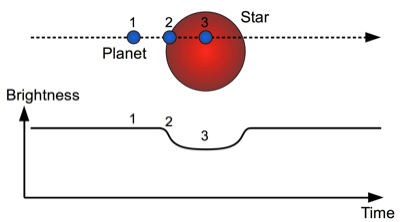Where Eclipse Exploration Has Led Us Today: Transits and Exoplanets
Ed Turner, professor of Astrophysical Sciences and director, Council for International Teaching and Research, Princeton University
In large part, astronomers seek to study distant objects in the universe by observing the light they emit. Eclipses are fundamentally different in that they involve the absence of light, which could normally be observed but is blocked by some intervening object. In the case of a total solar eclipse, the moon blocks the sun’s light. Eclipses are basically shadows, the absence of light.
Although solar eclipses no longer command the great scientific attention that they received in previous centuries, a closely related phenomenon now provides astronomers with a powerful technique for discovering exoplanets, planets orbiting stars other than the sun. When an exoplanet passes between its star and the Earth, it blocks a small portion of the light that would otherwise be reaching our telescopes, thus causing the star to appear temporarily dimmer; such an event is called a “transit.” The exoplanet’s shadow typically removes one percent or less of the starlight—a minor effect compared to a total solar eclipse, in which the sun’s light is almost completely blocked by the moon.
Nevertheless, modern telescopes and instruments can detect such tiny reductions in the star's brightness. Each time an exoplanet completes an orbit around the star and returns to the same position, the star's light is again blocked and dimmed. By carefully monitoring the brightness of large numbers of stars for this periodic dimming, astronomers (including Princeton professor Gaspar Bakos, his colleagues, and students) have discovered most of the known planets outside the solar system.

